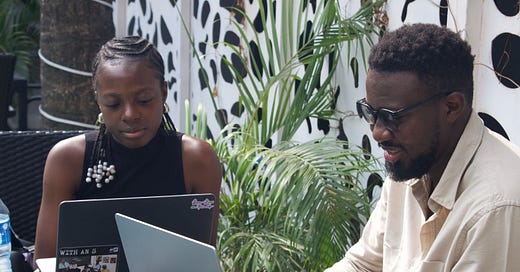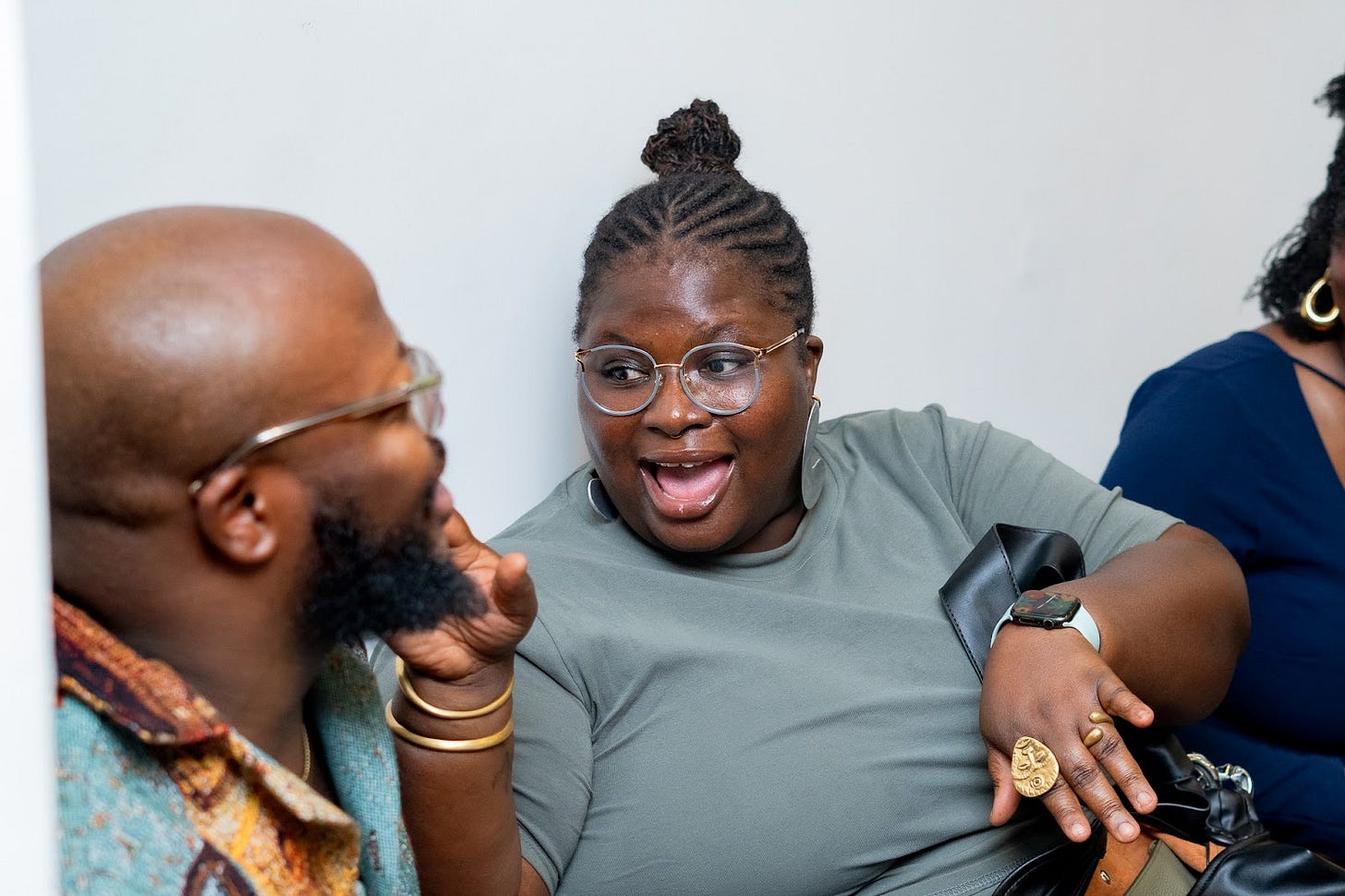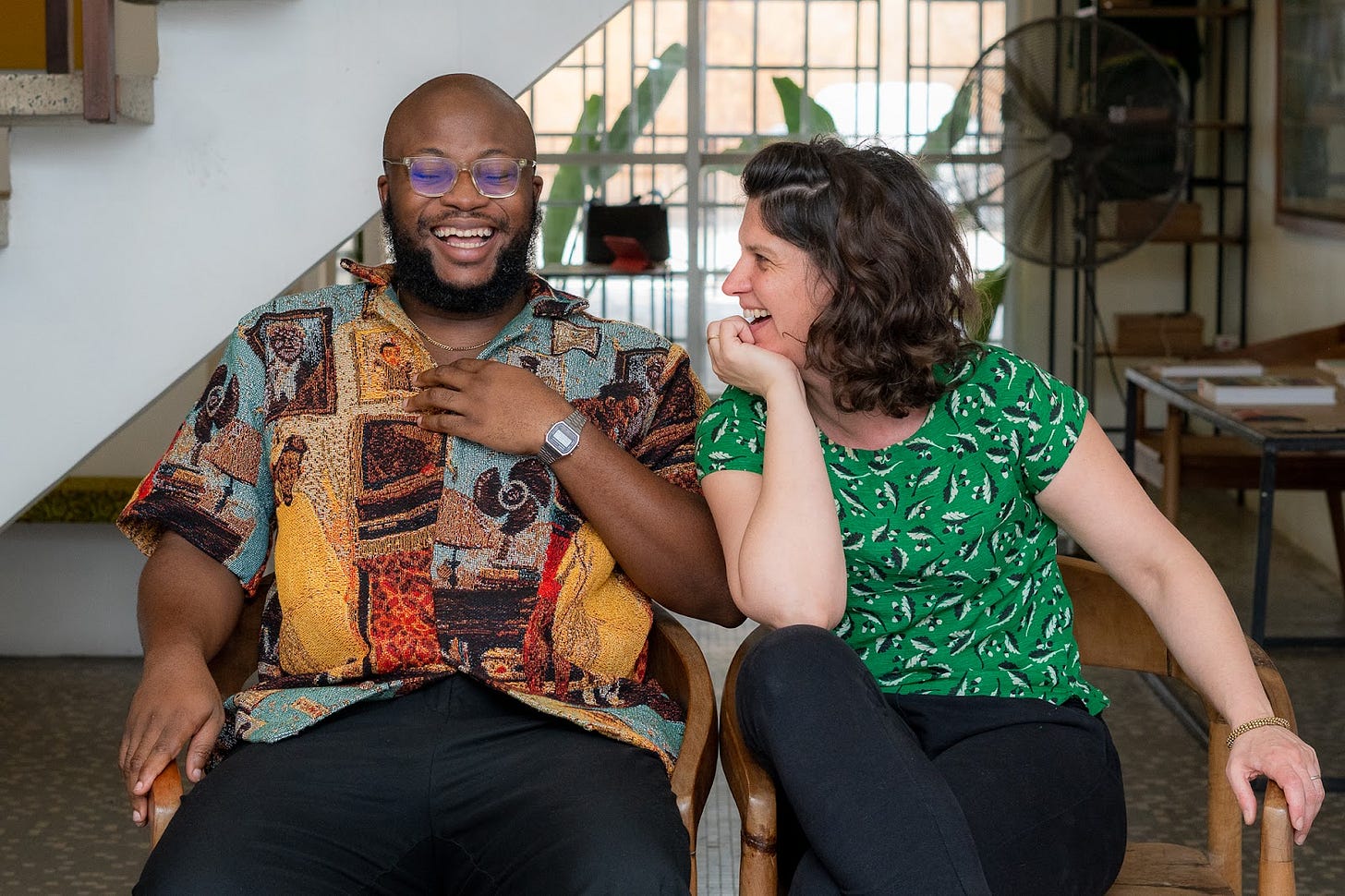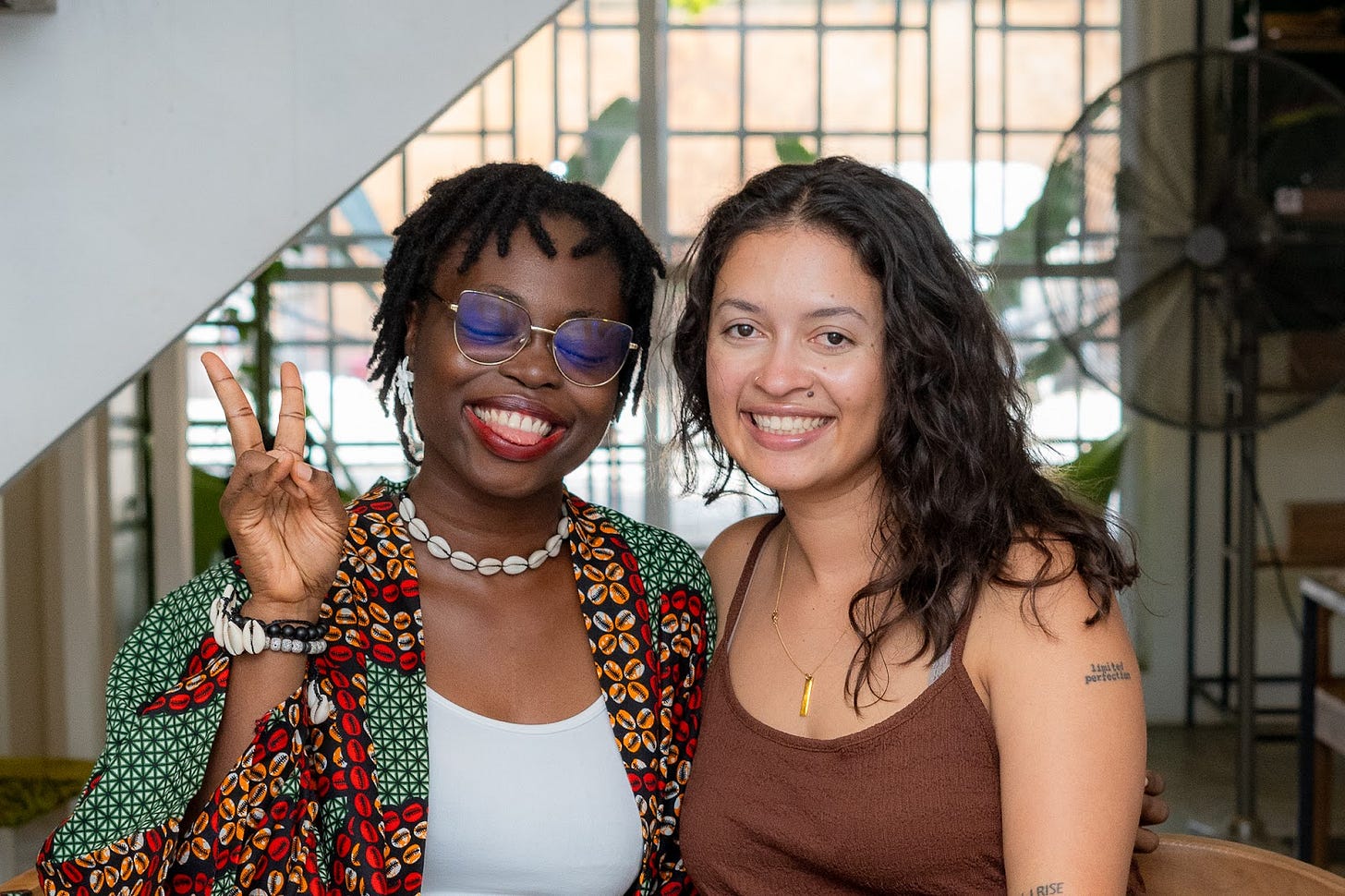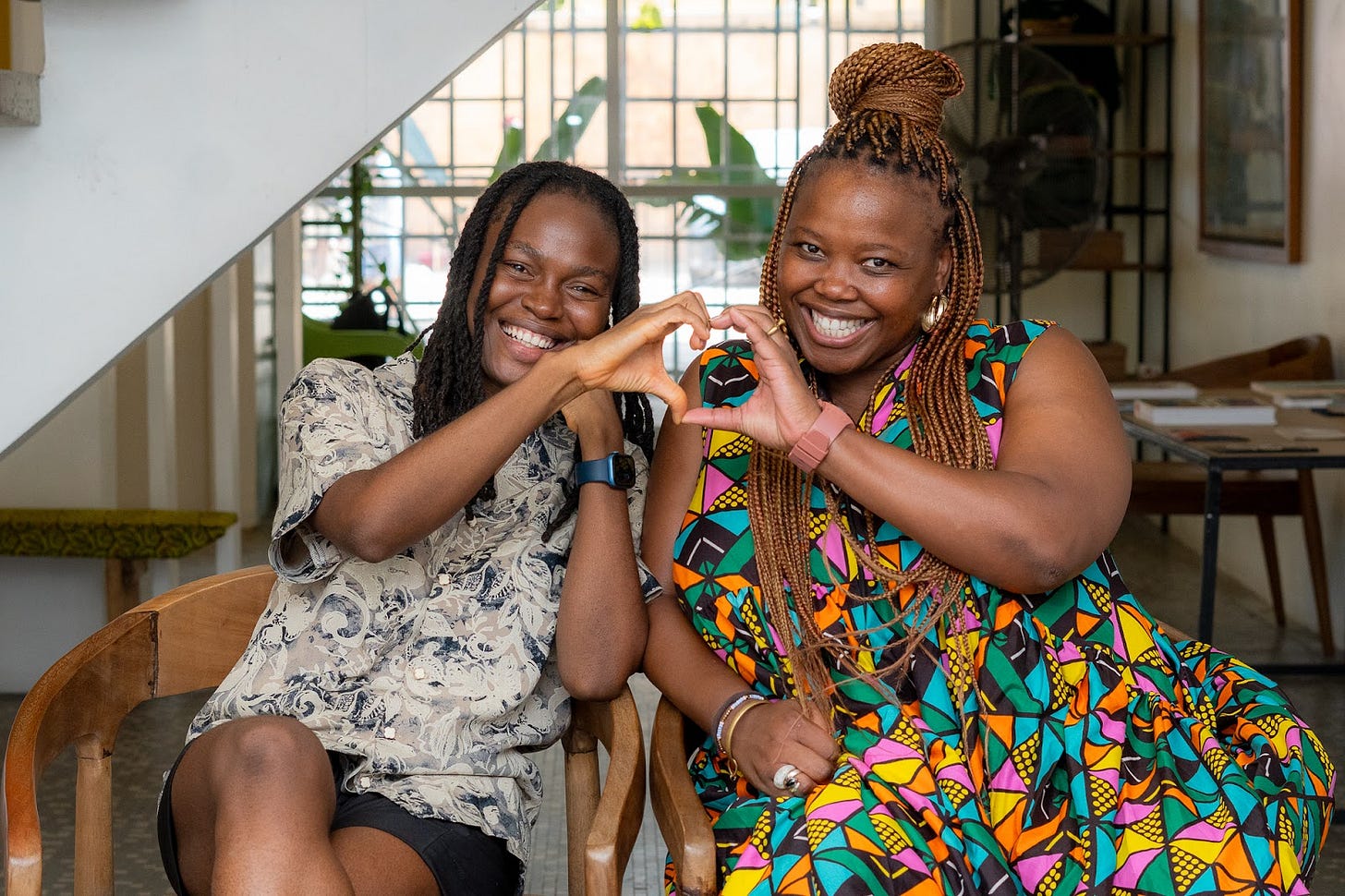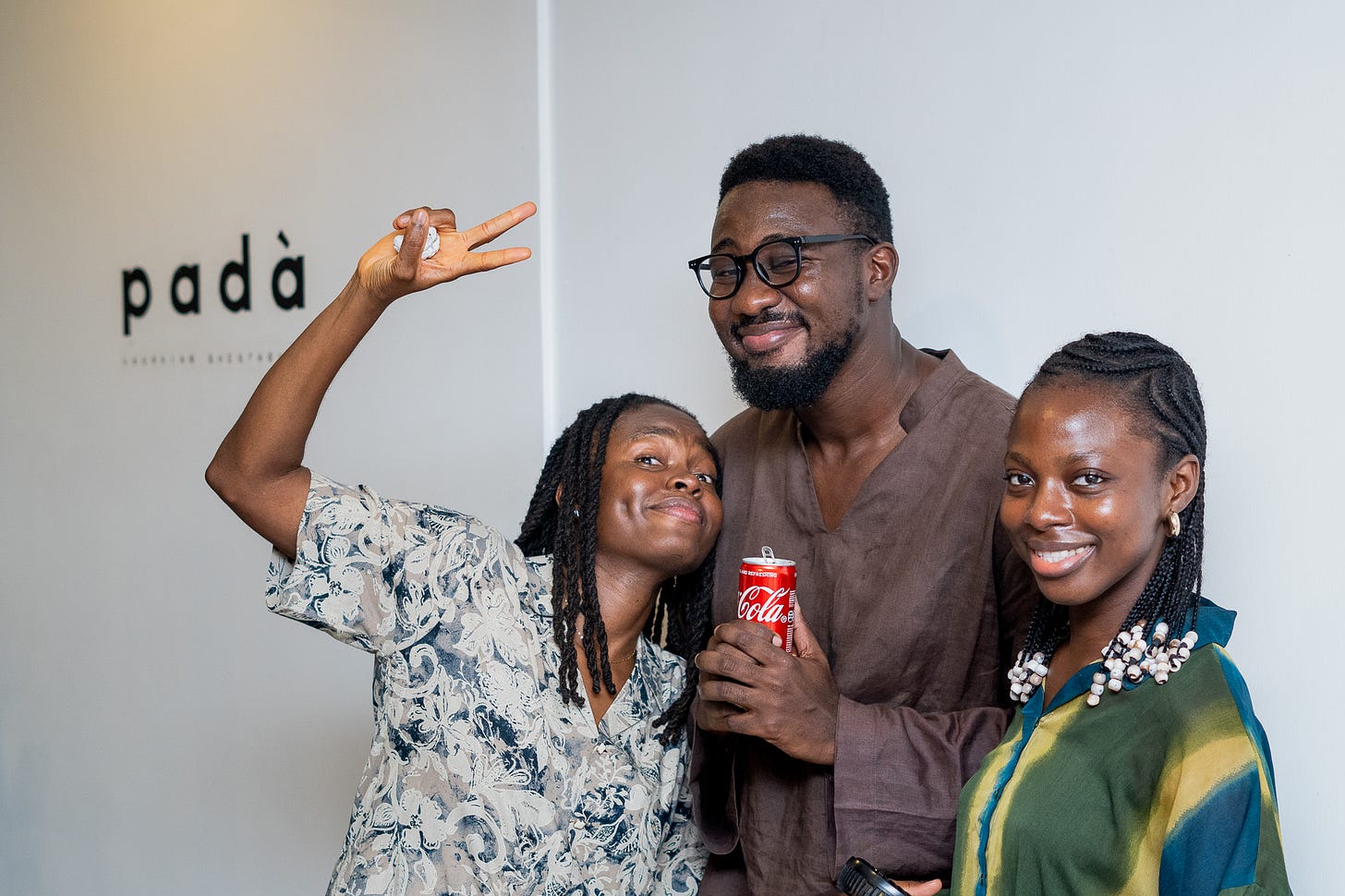It all started with listening. Nine of us gathered in a hotel boardroom, sheltered from the Lagos heat that pushes to 35 degrees Celsius in February. We listened to audio story after audio story, dissecting how they were made and what we liked and didn’t like. Maybe it goes without saying, but the best way to learn how to make audio stories is to listen to audio stories.
We came with work to do. Over five days, Radio Workshop’s production team trained four Nigerian storytellers to produce audio documentaries from start to finish. In the lead-up to the workshop, each trainee worked closely with a mentor to fine-tune their story.
The workshop began with a two-day intensive on how to interview. We held sessions on building scenes, recording good-quality audio, telling a story in chapters, and writing for the ear.
The trainees each produced a story about migration, or Japa as it’s called in Nigeria. After spending hours and hours plotting out their questions, they conducted their interviews in a makeshift studio in a hotel room. Then, they started scripting their stories with their mentors by their side. The final step was to record narration and hand over the audio files to the Radio Workshop audio engineers for mixing and sound design.
At the end of the week, we hosted a listening party at Padá Lagos, a community space on Lagos Island. We invited friends, family, and podcast enthusiasts to come listen to the stories and meet the producers.
For the trainees, it was the first time they shared their audio stories with a community of listeners. They all said they felt nervous. But when they took their seats in front of the crowd, talking about how the workshop improved their craft came naturally.
We caught up with the trainees after the workshop to hear about their experiences.
“Before the workshop, I wasn’t confident about how to make an audio story from start to finish. I was selecting tape randomly without a sense of what order they should go, but now, I can think in episodes, scenes, and chapters and have been able to map out what my first three episodes will be.” - Ayodeji
Ayodeji Rotinwa is a writer and editor interested in culture, art, and politics. Ayodeji’s story explored the conflict between ambition and tradition. He titled it Onyeka’s Debt and has since shared the story on his website. Ayodeji is Open Democracy’s Africa Editor, where he is applying what he learned while producing his first narrative podcast series.
“The biggest takeaway for me is the level of care you give audio stories about people. I think when creating something about someone's life, you have to handle it with care.” - Damilola
Damilola is a writer and project lead for the Nigeria-based publication Culture Custodian, where she produces a music-themed talk show podcast. For her story, she profiled a woman in the process of migrating with her boyfriend of seven years. Damilola set out to find out if her character actually wanted to move, or if it was all for love.
“The workshop changed everything for me. It gave me a practical guide for approaching stories made for the ear. The thing that stuck with me most is that I need to get rid of commas in my writing. And I really liked the listening party! It was one of the few times I've seen my work in action.” - Esohe
For Esohe Iyare, this was her first-ever audio story. Esohe is a freelance writer, researcher, and current affairs buff. Her particular interest is in women's experiences and digital culture. So, it’s no surprise that Esohe’s story profiled a young woman going against the expectations of her family and friends by deciding to stay in Nigeria.
“ Most of my audio production experience is in fiction. Telling somebody's true story just kind of seemed alien and difficult to me. The game changer for me was the simplicity of the language used to teach the workshop, it made things very relatable.” - Fayfay
Fayfay Odudu is an audio engineer, podcast producer, and founder of Naija Podhub, a community of Nigerian podcasters. She got her start in radio production and made the switch to podcasting soon after. Her story followed Tobi, who, after spending more than 10 years in the UK, chose to move back to Nigeria in search of ‘home.’
The workshop was a learning experience for us, too. This was the first of what we hope will be many workshops across the continent. Let me be the first to say that the future of audio storytelling in Africa is bright. A special thank you to Hindenburg for sponsoring audio editing software for the participants.
Before I leave you, we’ve got some big news! Although we didn’t win, we were nominated for our second Ambies Award. Our two-part series, Uganda's Hidden Rainbow, was nominated for Best Documentary. You can read more about it here.
Till next time,
Lesedi


